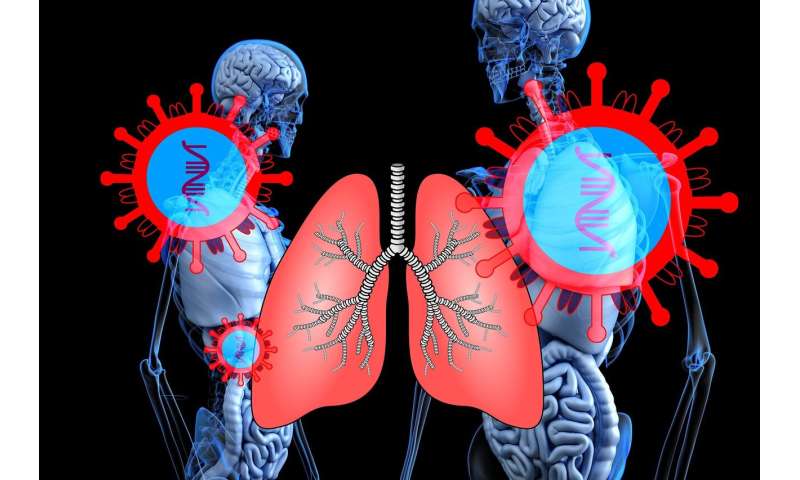
Brazil on Friday claimed the unenviable position of having the second-highest coronavirus death toll worldwide behind the United States, where several states have posted record daily case totals, signaling the crisis is far from over.
US and European stocks ended the week on an upswing after a rout sparked by the US data and fresh evidence of the economic damage caused by virus-related lockdowns, with British GDP shrinking by a record 20.4 percent in April.
Meanwhile, in several European countries, the focus shifted to the courts, and who might eventually be pinned with the blame for the global financial and health crisis.
Brazil’s health ministry recorded 909 deaths in the past 24 hours, putting the total at 41,828—meaning the country of 212 million people has now surpassed Britain’s death toll.
Experts warn the actual number of cases in Latin America’s biggest economy could be many times higher than the confirmed figure of 828,810.
“Some areas are at a critical stage” in Brazil, with intensive care unit occupancy levels of more than 90 percent, World Health Organization emergencies director Mike Ryan told journalists in Geneva.
Brazilian President Jair Bolsonaro, who threatened last week to quit the WHO over “ideological bias,” has dismissed the virus as a “little flu,” and berated state officials for imposing lockdowns.
Latin America is the latest epicenter in the world’s battle with the novel coronavirus, which emerged in China late last year.
The region has recorded more than 1.5 million infections and 76,000 deaths, with no signs the virus is slowing.
In the US, which has confirmed the most COVID-19 deaths—over 114,000—more than a dozen states, including two of the most populous, Texas and Florida, reported their highest-ever daily case totals this week.
“It’s important that we remember that this situation is unprecedented. And that the pandemic has not ended,” Robert Redfield, director of the Centers for Disease Control and Prevention, told a media briefing on Friday.
Nevertheless, US President Donald Trump and many local officials remain determined to get the world’s biggest economy back on track.
The virus and resulting lockdowns have caused a spike in US unemployment—44.2 million people have filed claims for jobless benefits since mid-March.
Worldwide, the pandemic has killed more than 425,000 people and infected more than 7.6 million.
Court action
In Italy, one of the countries hardest hit by the virus, prosecutors questioned Prime Minister Giuseppe Conte over his government’s initial response.
In the country’s northern Lombardy region, an investigation has been launched into why a quarantined “red zone” was not enforced around two towns sooner.
And in Bergamo province, 50 victims’ family members filed complaints this week over how the crisis was handled.
“All investigations are welcome. The citizens have the right to know and we have the right to reply,” Conte said this week.
Elsewhere, British Airways, easyJet and Ryanair launched legal action against the British government over a “flawed” 14-day coronavirus quarantine system introduced this week.
Europe’s reopening
Europe is pushing ahead with its exit from lockdown, with a number of countries preparing to reopen borders on a limited basis on Monday after the EU Commission urged a relaxation of restrictions.
France said it would gradually reopen its borders to non-Schengen countries from July 1.
Greece said it would welcome tourists again, though Britons remain barred—and passengers from Italy, Spain and the Netherlands must undergo tests on arrival.
Germany said it would end land border checks on Monday.
And Italy said it would allow amateur contact sports—including team sports—from June 25.
‘Fight not over’
Yet world health officials have warned that the virus is far from contained.
“The fight is not over,” WHO chief Tedros Adhanom Ghebreyesus said Thursday.
In evidence of the continued threat, eleven residential estates in the southern part of the Chinese capital were locked down due to a fresh cluster of coronavirus cases linked to a nearby meat market, officials said Saturday.
Seven cases have so far been linked to Xinfadi meat market, six of them confirmed on Saturday, officials added. Nine nearby schools and kindergartens have been closed.
China has largely brought domestic infections under control, and the majority of cases in recent months have been among overseas nationals returning home.
In India, experts are warning the worst is far from over.
Source: Read Full Article
